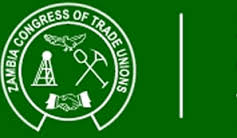By HOPE BWALYA –
THE Zambia Congress of Trade Unions (ZCTU) has bemoaned the low participation of women in the labour movement of which only about 27.3 per cent of them were in the ZCTU board.
ZCTU president Chishimba Nkole said the situation was worrying as it did not promote gender equality.
Mr Nkole said gender equality played an important role in achieving sustainable development in the country.
Mr Nkole said this at a gender audit training workshop in Lusaka yesterday.
“We do recognise that our female workers and women in general continue to be marginalised in all aspects of life. Women only represent 27.3 per cent of the current ZCTU board and only a sheer 2.3 percent of the ZCTU executive committee,” he said.
Mr Nkole said gender equality did not just hinge on human rights, but a fundamental tool for sustainable development, because it allowed women and men to participate equally in decision making matters.
He said the institution’s pursuit for gender equality and equity was not only bound by many international treaties, but even the Zambian law in the Industrial and Labour Relations Act, which restricted any form of discrimination targeted at any group of workers regardless of their sexual status.
In another development, Mr Nkole mourned the death of a contractor at the Konkola Copper Mines Nchanga Open Pit mine who died while on duty on Tuesday morning in a mining accident.
Mr Nkole said it was sad to lose a worker while on duty, which should be a lesson on the need to put up further measures to secure the lives of miners.
Meanwhile, Africa Equality and Social Protection (AESP) coordinator Ghislaine Saizonou said it was important that women did not just make verbal participation, but also encouraged themselves to participate physically.
Copperbelt University Lecturers Union (CBULU) representative Willie Ngosa said the workshop was important to the implementation of the International Labour Organisation (ILO) framework on gender main streaming.
Mr Ngosa said it would help them understand better what gender mainstreaming was and how to ensure that it was implemented in various institutions.






